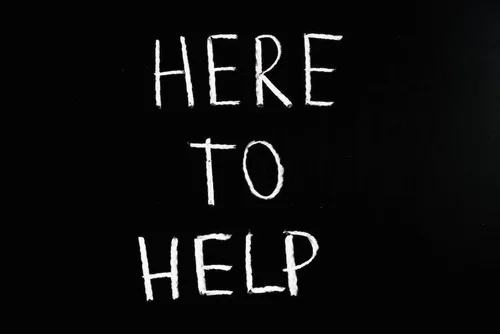How Can Recovery Companions Support Me After a Relapse?

Recovery is a lifetime journey, which means there is always going to be a risk of relapse. However, even if you relapse, it does not mean all the hard work you put into treatment and getting healthy was wasted. It simply means you need to modify or change your recovery plan to better suit your ever-changing needs. You can get healthy again and overcome this setback.
What Is Relapse?
A relapse is a return to uncontrolled use of a substance after beginning one's journey to achieve and maintain abstinence. According to The Yale Journal of Biology and Medicine, there are three distinct stages of relapse: emotional, mental, and physical.
Emotional Relapse
The emotional phase of relapse is when you remember your time in active addiction and do not want to repeat it, though you may not be doing the necessary things to avoid it. This can be seen when you stop going to meetings, avoid sharing emotions, and focus more on others than yourself. You may view your intense desire not to have a relapse as the only protective factor you need. However, this can put you in denial of your risk of relapsing. It makes it harder for you to see the signs that you are heading in that direction.
During this stage, take time for yourself and make sure you are caring for yourself with proper sleep and nutrition. Self-care can be as simple as taking a longer shower than normal or taking five minutes to sit and reflect on your day. It can also be as extravagant as scheduling a full spa day once a month or planning a weekend getaway to recharge.
Mental Relapse
When you feel a battle in your mind between wanting to use and wanting to stay clean, you're experiencing a mental relapse. This stage occurs after a prolonged period of letting emotional relapse go without getting the help you need.
You can identify this stage when you start craving the substance you used, romanticizing the days of using, and minimizing the consequences related to using. Monitor these thoughts to determine if they are occasional thoughts triggered by something or a warning sign of engaging with substances again.
Physical Relapse
Born of opportunity and not adequately mitigating emotional and mental relapse, physical relapse is the act of using again. This stage can be further broken into a lapse, which is the initial use of a substance after treatment, and a relapse, which is a return to uncontrolled substance use.
Proper coping mechanisms and situational knowledge can help prevent this stage. Remember that, even if you reach physical relapse, this is not the end of recovery.
The Role of Recovery Companions
Recovery companions are trained professionals at Next Level Recovery who help support you through the stages of your recovery journey. They provide personalized care and can follow you through your journey for as long as you need them to.
After a relapse, you must reengage with treatment and recovery. This time can be just as overwhelming and intimidating as the first time, if not more so because you thought you were done with this part. Recovery companions help you in a way that friends or family can't because they have training and experience to encourage the best outcomes.
They can help in a variety of ways during each stage of relapse. Throughout each phase, they:
Emotional Relapse
- Help set boundaries with people so you can focus on yourself and not worry about others
- Create a schedule/routine to ensure you are making time for self-care
- Encourage breaks to prevent burnout and overstimulation
- Accompany you to social events to provide support
Mental Relapse
- Help identify triggers in your environment
- Hold you accountable for your actions and recovery maintenance
- Help you avoid temptation by finding hobbies or other ways to distract you
- Get you back into a routine of self-care and personal improvement
- Run practice scenarios to ensure that you are ready for different triggers
Physical Relapse
- Help you see the consequences related to using again
- Go with you to a recovery center
- Accompany you to and from treatment
- Attend therapy and group sessions with you
Recovery companions are personalized to be what you need. They exist to make your recovery journey as painless and straightforward as possible. They are there to support, encourage, empathize, and help you succeed. Their presence can help prevent relapse by noticing things you may not have thought of or helping you through things you may not feel strong enough to do yet.
Relapse can be a devastating, isolating, and difficult time of your life. Luckily, you don't have to handle it alone. Having someone there to provide support, a different perspective, and structure can help make getting back on track easier for you. At Next Level Recovery Associates, we want to get you the treatment you need. We will provide a recovery companion to give you that structure and accountability you may not have had before your relapse. If you find yourself struggling to stay away from substance use thoughts or physical use, or if you just feel like you could use someone else on your side in this battle, do not hesitate to reach out. We at Next Level want to help you in your recovery journey and provide you with a personalized experience to ensure you get everything you need to prevent another relapse. For more information, email consult@nextlevelra.com.
.svg)
